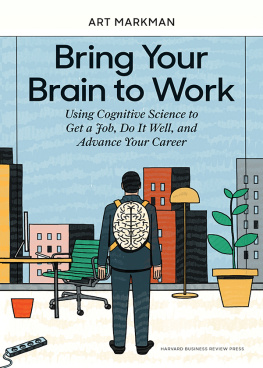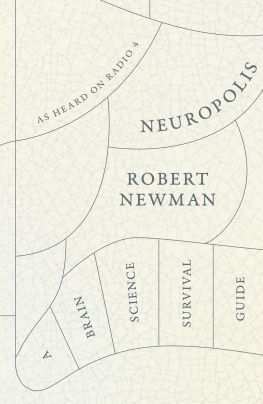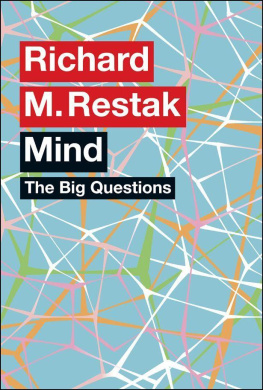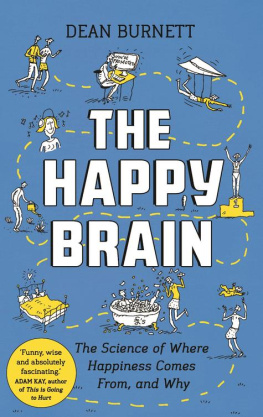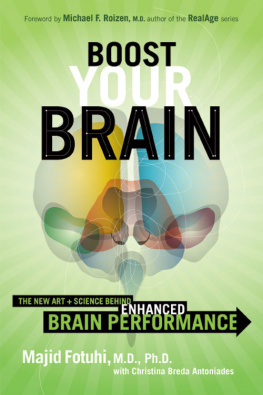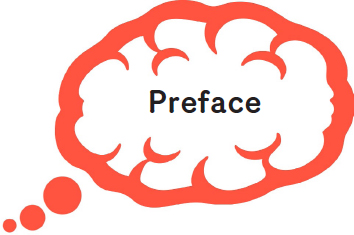STERLING and the distinctive Sterling logo are registered trademarks of Sterling Publishing Co., Inc.
2016 by Art Markman and Robert A. Duke
All rights reserved. No part of this publication may be reproduced, stored in a retrieval system, or transmitted in any form or by any means (including electronic, mechanical, photocopying, recording, or otherwise) without prior written permission from the publisher.
Any trademarks are the property of their respective owners, are used for editorial purposes only, and the publisher makes no claim of ownership and shall acquire no right, title, or interest in such trademarks by virtue of this publication.
For information about custom editions, special sales, and premium and corporate purchases, please contact Sterling Special Sales at 800-805-5489 or .
When we first started thinking about writing a book related to our radio show/podcast Two Guys on Your Head, it seemed like a daunting task to try to capture the spirit of a conversation in a book. On the one hand, the format of the show (as a seven-and-a-half-minute segment) is a natural fit with short chapters on different topics. On the other hand, while the two of us sound alike, we have very different (complementary) outlooks, insights, and dispositions. (Plus, it is not always easy to be funny in printthe timing and intonation that help to sell a joke are often missing on the page.)
Fortunately, we think weve captured, in book form, the essence of our personalities and perspectives as we tackle an array of interesting, head-scratching quandaries about human behavior. But first, we want to say a few words about the arrangement to get you oriented.
Like the episodes of the show, the book is in no particular order. You could choose to read it straight through from beginning to end. Or you may want to skip around. While we have a lot of strong opinionswere college professors, after allwe endeavored to make each conversation as deeply research-based as possible. At the end of the book, youll find a list of publications that inspired our discussions for each chapter. Those readings are a great place to start for people interested in further study of various topics in the field of psychology.
We know that we have not done justice to all of the subtlety in the areas we write about. This book is meant to give you a flavor of the latest research occurring across a broad spectrum of the field. We hope that, at minimum, you will find the book to be a source of entertainment, one that piques your curiosity, prompts conversation with friends, and perhaps provides a few nuggets of insight. Even better if you can apply what you learn to your own life or find yourself wanting to dig deeper into the study of human nature.
And with that, we invite you to dive in. Welcome to what we both believe is the vastly interesting world of the human mind, and to Two Guys on Your Head. Were glad youre here.
Does being open to experience lead to success?
Academics love to talk to other academics. We meet at con- ferences and share our research, reveling in conversations that were pretty sure only twenty-five other people on the face of the planet would care about. We are with our people. Of course, we also gossip about other academics and complain about aspects of our jobs. We are human, after all. But we love to share what our research has revealed to us about the nature of human thinking and behavior. The closest that most academics get to discussions of our work with nonexperts is in the classes we teach.
But psychology is a discipline that cries out for scientists to engage with people beyond the walls of academia. Just about everyone we know has a mind, and almost nobody knows very much about how it actually works. And thats really too bad. We would never let someone build a bridge without learning some physics, or practice medicine without learning biology, would we? So wouldnt it be to everyones advantage to know a bit more about how brains actually function before we develop an opinion, make a tough decision, or design a curriculum? Shouldnt we first explore what leads us to think and feel and behave the way we do?
And so we opened ourselves up to opportunities to talk to regular people about the human mind. Art began blogging for Psychology Today. Bob started working with educators to teach them about how students learn effectively. This outreach has kept us busy: At least once a week we end up speaking to an audience about the wonders of how our minds work.
There wasnt a goal in mind when all of this startedit just seemed like the right thing to do. All that work communicating with other audiences came in handy when Art found himself needing to sell something. It was the winter of 2012, and Art had helped start a new masters program at The University of Texas called the Human Dimensions of Organizations. The aim of the program was to teach folks in business about how people operate, combining studies in the humanities and the social and behavioral sciences. Because the program was new, Art had to look for ways to introduce it to more people. As part of this effort, he reached out to the local public radio station, KUT, because the station manages a music venue on The University of Texas campus called the Cactus Caf. Every couple of weeks, KUT hosts a conversation at the Cactus called Views and Brews. Art asked if some people from his program could participate, andmuch to his surprisethe station agreed.
Because the Cactus is normally a music venue (people like Lucinda Williams, Lyle Lovett, and Robert Earl Keen got their start there), Art thought it would be fun to bring a colleague from the music school along. So he called Bob and asked him to join in.
And that is how the two of us ended up on the stage of the Cactus Caf, along with the producer and moderator of the show, Rebecca McInroy, talking about smart thinking and creative problem solving. We had a great time and laughed a lot. And that was that at least for a while.
About a year later, Rebecca was putting together the next years schedule for the Cactus and asked us to do another Views and Brews. Because we like being onstage, we agreed, and when we showed up she asked if we would consider turning our conversation into a radio show and podcast about the mind. Neither of us had ever considered doing a radio showthe expected response would have been a smile and a polite excuse about being too busy. But here is where the personality characteristic openness to experience reared its head.


